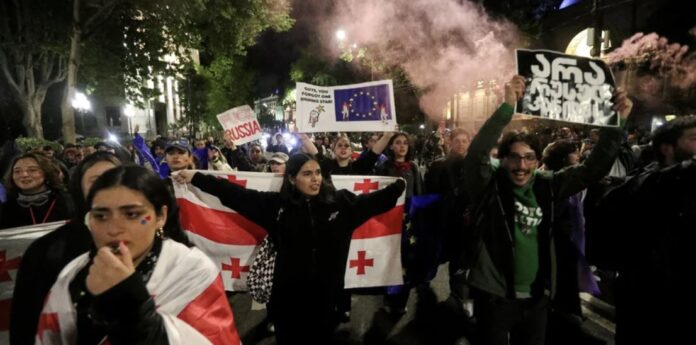The United States considers the possibility of providing a significant economic and security package of Georgia in the event that the Georgian government changes its anti -Western rhetoric and stops human rights abuses. The bill, which should be presented in the Congress of this week, provides for negotiations on establishing a preferential trade regime, the condition of which is the mainstream political standards. The plan also includes simplification of the visa regime for Georgia citizens and providing military assistance to provide territorial defense against Russian aggression. The program will only be activated if Georgia shows significant progress in the revival of democracy, including honest and free elections. Earlier, the United States stated the possibility of imposing sanctions against Georgian politicians and law enforcement officers who are promoting a bill on transparency of foreign influence.
Since April 9, a series of mass protests began in Georgia in response to the statement of the leader of the parliamentary majority from the Georgian Dream, Mamuki Mdinaradze, that his party will again contribute to the Parliament a law on "foreign agents", the so -called "Russian law".
The first reading of the Law was held in the Georgia Parliament on April 17. This document provides for mandatory registration of non-profit legal entities and media, which receive more than 20% of their income from abroad, as “organizations operating in the interests of a foreign state”. To pass the law in Georgia, it is necessary to go through three votes in parliament.
The second reading of the law took place on May 1. 83 deputies voted for him, 23.
The deputies of the European Parliament expressed indignation on the adoption in Georgia of a controversial bill on foreign agents, arguing that it threatens the country's Euro -Atlantic integration.
On April 25, the European Parliament approved a resolution on the Georgian bill on transparency of foreign influence. This document sets into question the negotiations on Georgia's accession to the European Union as long as the law is in force.
On April 30, there were clashes between the police and protesters near the Georgian Parliament building. President Salome Zurabishvili urged to stop accelerating the protest in Tbilisi and placed responsibility for events on the government.


